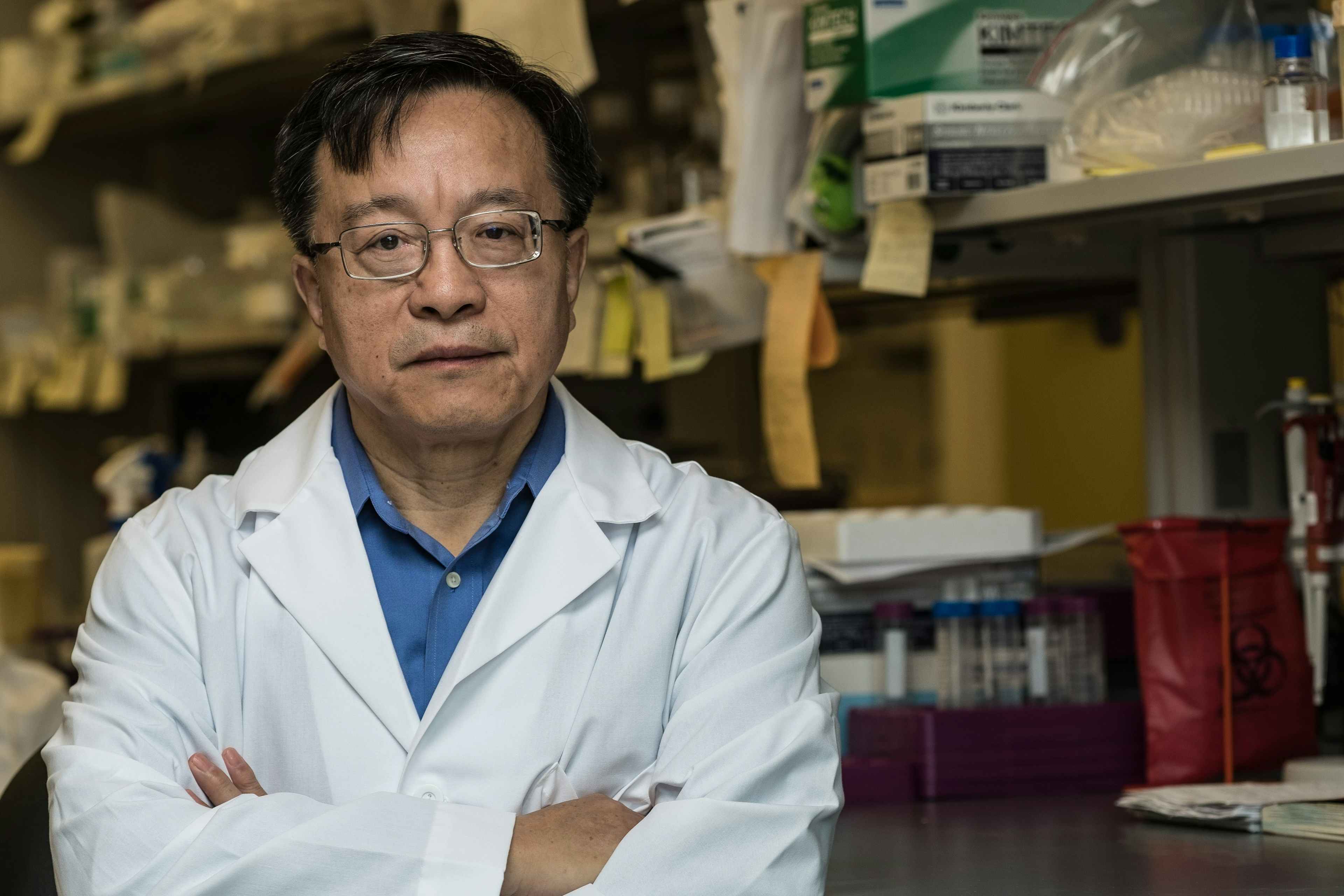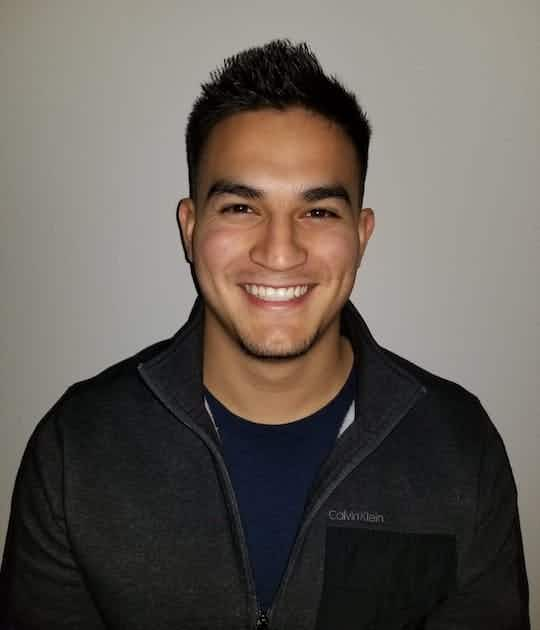Genome Engineering: Changing the Future of Medicine
Are you fascinated by the role genetics play in disease? Have you ever wondered how your DNA works to create your genetic makeup? This course allows you to delve into genome engineering and how the human genome can be edited to treat diseases, such as sickle cell and other hereditary blood disorders. Study the ethics surrounding genome editing and compare the various design tools utilized, especially as applied in the medical field. If you see yourself pursuing this topic in college, or one day in a career, this course is a great place to start.
Program Dates
Multi-length courses available throughout the year
Eligibility
For students ages 13 and up
Fees
$1,795
Start Your Journey Into Genome Engineering
Learn the Basic Principles of Molecular Biology
Study DNA and RNA biomolecules, and describe genetic variations in the human genome. Learn how changes in a single nucleotide (a mutation) can produce sickle cell disease.
Understand the Basics of Genome Editing
Learn the essentials of genome editing and why doctors choose it versus medication. Review three major classes of engineered nucleases. Understand how the CRISPR/Cas9 system works.
Delve into the Therapeutic Applications of Genome Engineering
Explore genome editing’s application to sickle cell disease. Consider the symptoms, potential consequences, and treatments. Study clinical trials on genome editing, detailing the risks and benefits.
Study the Challenges and Ethical Issues of Genome Engineering
Understand what genome engineering can and can’t do. Consider stem cell removal safety concerns and genome editing ethical issues. Determine what’s needed to make the treatment safer.
Review the Major Opportunities of Genome Engineering
Explore uses for genome engineering beyond medicine. Discuss various methods in modifying genomes, and how gene editing is used to improve food and create a cleaner environment.
Explore Potential Careers in Genome Engineering
This course offers a solid background in medicine. Learn how genetic engineering is important in fields like engineering, medical research, genetic counseling, data science, and diagnostics.
How You Will Benefit
- Learn the basics of the human genome and the genetic causes of disease.
- Be able to describe how scientists can specifically modify a genome.
- Gain knowledge of genome-engineering tools.
- Be able to interpret gene-editing consequences.
- Understand the ethical issues in using genome editing in treating human conditions.
- Gain access to mentors who will answer your questions and help brainstorm assignments.
- Earn a Certificate of Completion from Rice University.

Three Learning Advantages Designed for You
Capstone Project
This course culminates in a special capstone project that allows you to:
- Define beta-thalassemia, a hereditary blood disorder that is caused by mutation of a beta-globin gene.
- Understand the mutations that cause beta-thalassemia.
- Identify a CRISPR/Cas9 gene-editing based strategy for treating beta-thalassemia.
- Create a 1-2 minute video describing how to reduce the production of the beta-chain of hemoglobin.
Mentoring
You’ll receive guidance from a mentor who can support you and deepen your learning experience. You can expect:
- Encouragement and direction on all assignments.
- Inspiration, motivation, and confidence to help you excel in your studies.
- Brainstorming and ideation to help you prepare for your capstone project.
Flexible Learning
- 100% online learning that works with your schedule.
- Flexible format: you’ll learn through video lectures that allow you to tune in anytime that works for you.
- 20 to 30 hours of total instruction and course work, including engaging multimedia, simulations, and curated assignments for which you will receive guidance and support from mentors.
Apply Now for the Next Available Course
All course options have the same educational content, learning materials, and number of assignments. We are offering a condensed version of the course in order to accommodate students’ individual schedules.
Hear from Rice University
Hear From Our Students
"I really enjoyed this course! The material was complex and interesting, but was also digestible and understandable! My mentor was always available to answer any questions I had and checked in regularly to talk to me about the course and remind me about deadlines! I loved this course and would definitely recommend it!" - Aditi, genome engineering student from IL.
"This course is really interesting and fun to take. The instructional videos are very helpful and informative. I really like that each student gets a mentor that helps them throughout the course. My mentor was extremely helpful and always answered my questions." - Elyse, genome engineering student from TX.
The course allows you a lot of freedom, allowing you to take it at your own pace. Personally, I was taking the course during school and I was able to not only complete it, but put a lot of passion and effort into all my assignments, even though I had nearly a full schedule of AP classes at school. You can really tell the speakers in all of the demonstrations and videos truly care about the field and have real, applicable experience in genetic engineering that they are great at explaining. - Austin, genome engineering student from MS.

Course Designed by Rice University Faculty
Dr. Gang Bao
Dr. Bao is the Department Chair and Foyt Family Professor in the Department of Bioengineering, Rice University. He is also a CPRIT Senior Scholar in Cancer Research and the Director of Nanomedicine Center for Nucleoprotein Machines at Rice. Dr. Bao received his undergraduate and Master’s degrees from Shandong University in China, and his Ph.D. from Lehigh University in the US. Dr. Bao is a Fellow of the American Association of Advancement in Science (AAAS), American Society of Mechanical Engineers (ASME), American Physical Society (APS), American Institute for Medical and Biological Engineering (AIMBE), and Biomedical Engineering Society (BMES).
Meet Your Mentors

Daniel
Rice University student working toward a Ph.D. in Bioengineering. NSF graduate research fellow with a demonstrated history of working in biomolecular engineering and drug delivery laboratories.

Buhle
Postdoctoral fellow at Rice University. Working in academia on developing novel delivery systems for gene editing technologies that have the potential to cure monogenic diseases.

Samiksha
Pre-med student with a Bachelor of Science in biochemistry medical sciences and minor in neuroscience. Certified Phlebotomy Technician, CPT-1.
How to Apply
It’s easy. No transcripts or letters of recommendation are needed. Our application requires basic contact information for you and your parent or guardian. Then, tell us why you wish to take this course. Include your personal story through writing, video, photos—or any medium you prefer.
Begin the guided process. It should take only a few minutes to answer the questions.

Want to Know More?
Sign up for more information and we’ll be in touch.
Frequently Asked Questions
How will you be graded? What are assignments like? How much time do you have to turn around a project? When do you find out if you’re admitted? Find answers to your questions here.
Scholarships
We offer need-based scholarships for participating students who exhibit high potential and an inability to pay the full tuition.
- If you haven’t applied to the program, apply here. After submitting your application, click “Apply for a need-based scholarship” on the confirmation page to request a scholarship.
- If you’ve already applied to the program, sign in to your profile to check your scholarship status. If we don’t have a scholarship request on file, click “Apply for a need-based scholarship” to request a scholarship.